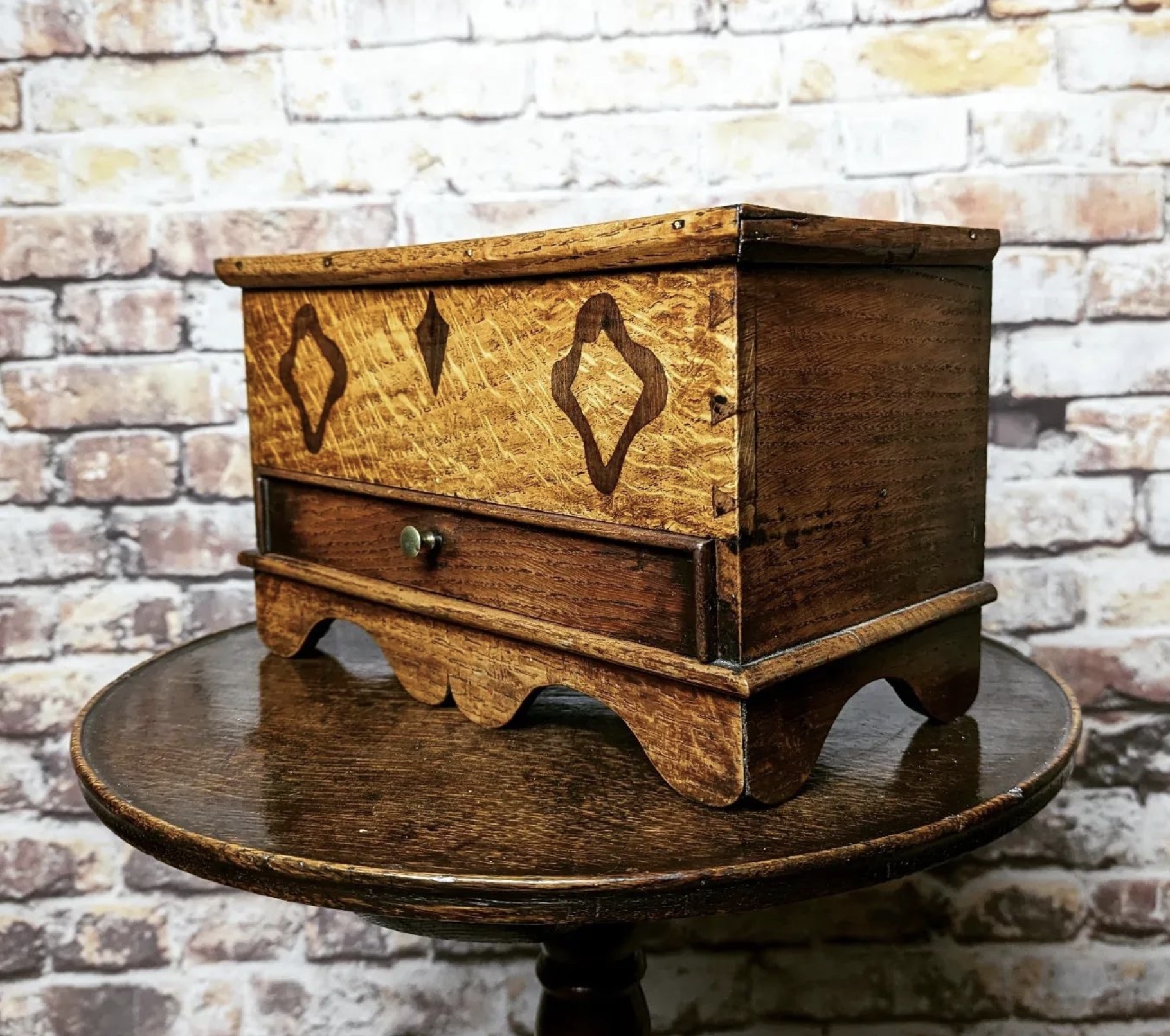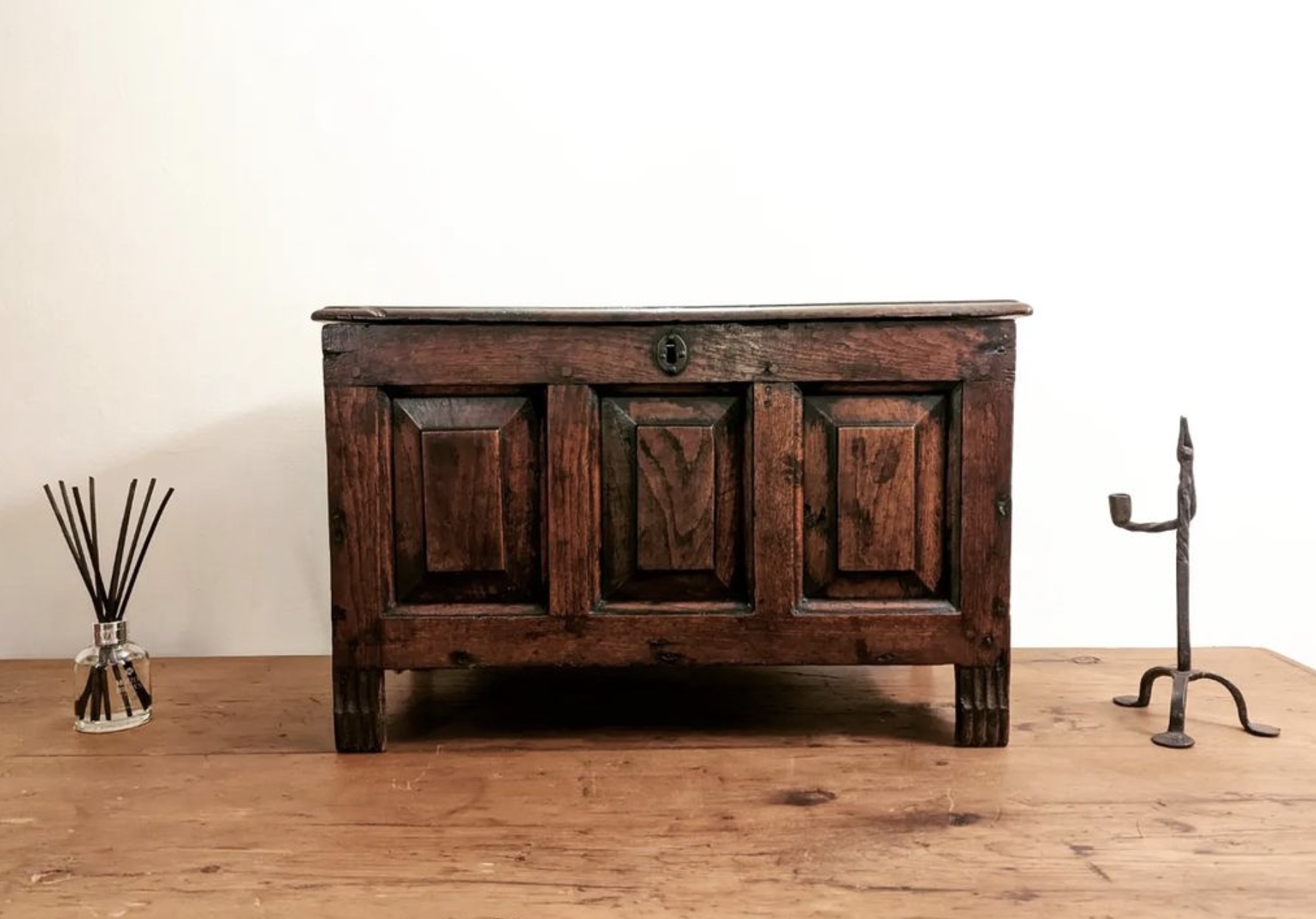Antiques Trade Talks – Mouse House Antiques
 Samuel Tilston is a second-generation antique dealer and owner of Mouse House Antiques. Based in Welshpool in Wales, he is passionate about 18th-century furniture and mainly focuses on exporting to North America.
Samuel Tilston is a second-generation antique dealer and owner of Mouse House Antiques. Based in Welshpool in Wales, he is passionate about 18th-century furniture and mainly focuses on exporting to North America.
 How did you get started in the antiques trade?
How did you get started in the antiques trade?
I started dealing around 11 years old, my father giving me two chairs to get started. I’ve always wanted to source the best quality and unique oak I can find. The name Mouse House Antiques was born from the outbuilding my father let me use, there being 7 outbuildings, each had a name. Mine was called the mouse House.
What is the unique appeal of antiques?
The attraction to me with antiques is that one can never learn everything. As the saying goes ‘everyday is a school day’. I’ve always maintained there is no such thing as an expert. Every day I go out buying, or, indeed, for that matter, selling. I learn something new from either buyer or seller. The thirst for knowledge and the excitement of finding treasure everyday is a privilege and addictive. Remember, having a buyer is also a privilege not a right. Look after them.
What areas/items are currently in demand and why?

Quality, small and unique is always in demand. I’ve heard over the decades constantly that the antique trade is dead and finished. Yet, here we all are, still going forward. It’s an evolving trade like everything. It’s much more fast paced now with social media and digital marketing taking over. None of this is a bad thing. I believe it gives the buyer more choice and more knowledge, which, in turn, makes the dealer a better buyer and seller. The dealer has to accept that the buyer is now informed. Money is tight. The buyer has become cautious. To my mind anything that sharpens up the dealer in favour of the buyer can only be a good thing. It finally means the buyer is dicating the market, the fashions, trends and prices.
How is new technology good for buyers/collectors?
The buyer should always remember that they need a thousand eyes, the seller but one. They cannot ask enough questions, get a receipt detailing, date, condition etc – as much information as they can. The digital market means they can afford to shop around and get a feel for market prices and learn before they buy.
 What key lessons have you learnt along the way?
What key lessons have you learnt along the way?
I was brought up to believe that the profit is in the buying, not in the selling, so never ask yourself what you are going to make. Ask yourself what you can afford to lose because you won’t sell everything at a profit. You have to realise your mistake quickly and move on. Education isn’t free in this trade. A lot of buyers don’t ask enough questions. I have two or three older, wiser dealers that I will go to for advice. And why not? You simply cannot know everything. I get messages every day off some dealers asking questions, and I welcome it. The more knowledge I give them, the better buyer they become, and the more stock available to me. Helping each other grow is key for the whole trade. It is better to have one quality item, then ten average items, so always buy the best you can afford and the purest example you can find. It will grow your reputation and make selling easier.
Where are your hunting grounds?
Antique fairs and auction houses can be great hunting grounds. I strongly advise getting to know the porters – these chaps see and hear everything. They can tell you what to avoid, when something good is coming up. Respect them and treat them well.
 Is the trade attracting younger people?
Is the trade attracting younger people?
Personally, I’m seeing younger buyers coming through regularly now. They are tired of the throw-away concept and now want an investment piece. One piece of 18th-century oak looks absolutely stunning set against a contemporary background. It’s a wonderful time for me and interior designers alike.
What advice would you give to anyone starting out?
My advice to younger dealers or dealers just starting out is that £50 is enough! I would hunt through junk shops and charity shops for silver or vinyl records: both cheap to buy, easy to research and can have good returns. Also, you don’t need a van to carry them or a pitch in an antique centre to sell them. And remember, ask, ask and ask again!

